- Home
- Francis Spufford
The Child that Books Built
The Child that Books Built Read online
The Child that Books Built
FRANCIS SPUFFORD
Contents
Title Page
ONE Confessions of an English Fiction Eater
TWO The Forest
THREE The Island
FOUR The Town
FIVE The Hole
Acknowledgements
About the Author
Copyright
CHAPTER ONE
Confessions of an English Fiction Eater
‘I can always tell when you’re reading somewhere in the house,’ my mother used to say. ‘There’s a special silence, a reading silence.’ I never heard it, this extra degree of hush that somehow travelled through walls and ceilings to announce that my seven-year-old self had become about as absent as a present person could be. The silence went both ways. As my concentration on the story in my hands took hold, all sounds faded away. My ears closed. I didn’t imagine the process of the cut-off like a shutter dropping, or as a narrowing of the pink canals leading inside, each waxy cartilaginous passage irising tight like some deft alien doorway in Star Trek. It seemed more hydraulic than that. Deep in the mysterious ductwork an adjustment had taken place with the least possible actual movement, an adjustment chiefly of pressure. There was an airlock in there. It sealed to the outside so that it could open to the inside. The silence that fell on the noises of people and traffic and dogs allowed an inner door to open to the book’s data, its script of sound. There was a brief stage of transition in between, when I’d hear the text’s soundtrack poking through the fabric of the house’s real murmur, like the moment of passage on the edge of sleep where your legs jerk as your mind switches over from instructing solid limbs to governing the phantom body which runs and dances in dreams. Then, flat on my front with my chin on my hands or curled in a chair like a prawn, I’d be gone. I didn’t hear doorbells ring, I didn’t hear suppertime called, I didn’t notice footsteps approaching of the adult who’d come to retrieve me. They had to shout ‘Francis!’ near my head or, laughing, ‘Chocolate!’
I laughed too. Reading catatonically wasn’t something I chose to do, it just happened, and if it could be my funny characteristic in the family, a trademark oddity my parents were affectionate towards, that was great. Though I never framed the thought on the surface of my mind, stopping my ears with fiction was non-negotiable. There were things to block out. My parents were loquacious like me, constant reassurers, constant interrupters. Swags of talk flowed out of them like those many-folded banners used in medieval pictures, ancestors of the speech bubble. I idolised them and I wanted them to shut up. My little sister had kidney failure and trailed plastic tubes; I loved my ill sister and felt that I owed such a lot of attention to her state that I had better pay none. So treating the way I read jokily got us all off the hook. With an unspoken whew of relief it domesticated what was obviously a bit too extreme for comfort.
I still do it, still automatically wrap in humour my sludgy dives into text. I realised recently that in bookshops I do a placatory dumbshow as I move among the shelves. I’ve got a little repertoire designed to make my reactions to the books I’m cruising among likeable, likeable to an imaginary audience. Here I go, then: I’m in the basement of a big science-fiction bookshop in central London, jinking left and right past posters of Princess Leia, Dr Who videos, Bart Simpson T-shirts, leather-fetish magazines mixed up in a rack with the Fortean Times, past science fiction’s outworks of non-verbal and semi-verbal stuff, towards its actual fiction, A–Z by author. My business is there, and when it comes to books I’m a really skilled browser, believe me, finely attuned to the obscure signals sent out by the spines of paperbacks, able to detect at speed the four or five titles in a bay that pull at me in different ways. What’s this? Imported American military SF, black gloss cover with display type of gothic spikiness, picture of space-opera interstellar dreadnought encrusted with guns on the front. Keyword ‘mercenary’ in the blurb on the back, so it’ll be nasty; phrasing of the come-on lines also suggests post-Robert-Heinlein right-wing libertarian blow-up-Oklahoma-City mad gun-toting bullshit, not an uncommon ideological flavouring in this subgenre, so it’ll be programmatically nasty. I don’t want to read this book, I certainly don’t want to buy it, but I do want to take a single sip of its particular poison. Open a page at random. Oh my Lord, gushing human intestines. Very disgusting – yet also kind of arresting. But now I want to put the book back, and as I slide it back into its neon nest I also want to push it away from me, from my tastes and the kind of person I am. I want to demonstrate that between a person like me and a book like that only an amused disdain is possible. So I do this thing. I pantomime furrowing my brow in pain; I draw back my lips from my teeth like an affronted chimp; I push air against my upper palate to make a hissy, glottal-stopped disgust-noise. ‘Eekh!’ I say, as if eyes were fixed on me from all quarters – as if the alacrity I now want to cancel might have been seen, like a spark arcing between eye and page, by other browsers, or the punks serving behind the counters who are often scholars of comic-book history, or the polite Asian heavies doing security on the door.
Actually, of course, I take it for granted that it hasn’t. One of the first things you learn as you begin to read is the amazing exterior invisibility of all the rush of event and image which narrative pours through you. I’m thirty-two years old as I do my little performance in the bookshop, which means I’ve been reading for twenty-six years. Twenty-six years since the furze of black marks between the covers of The Hobbit grew lucid, and released a dragon. Twenty-six years therefore since the primary discovery that the dragon remained internal to me. Inside my head, Smaug hurtled, lava gold, scaly green. And nothing showed. Wars, jokes, torrents of faces would fill me from other books, as I read on, and none of that would show either. It made a kind of intangible shoplifting possible, I realised when I was eleven or so. If your memory was OK you could descend on a bookshop – a big enough one so that the staff wouldn’t hassle a browser – and steal the contents of books by reading them. I drank down 1984 while loitering in the O section of the giant Heffers store in Cambridge. When I was full I carried the slopping vessel of my attention carefully out of the shop. Nobody at the cash desks could tell that I now contained Winston Smith’s telescreen chanting its victories, O’Brien’s voice admitting that the Thought Police got him a long time ago. It took me three successive Saturdays to steal the whole novel. But I have not ceased to be amazed at the invisibility I depend on. Other people can’t see what so permeates me, I accept that, but why can’t they? It fills me. The imbalance between what’s felt and what shows means I carry the sensory load of fiction like a secret. Perhaps like all secrets it leaks in the end, but while I’m still freshly distended with my cargo of images, while I’m a fish tank with a new shoal in me, with one aspect of myself I enjoy the power of being different behind my unbetraying face. If I hung about stoned in front of a police station, solemn on the outside and spiralling chemically within, or wore a lace thong to the office beneath my business suit, I wouldn’t be getting a different buzz. I flirt with discovery. My rigmarole in the SF bookshop is exhibitionism as well as defence, asks to be noticed while it tries to camouflage. Look at me! (Don’t look at me!) I’m cramming myself over here, I’m gobbling worlds!
I need fiction. I’m an addict. This is not a figure of speech. I don’t quite read a novel a day, but I certainly read some of a novel every day, and usually some of several. There is always a heap of opened paperbacks face down near the bed, always something current on the kitchen table to reach for over coffee when I wake up. Colonies of prose have formed in the bathroom and in the dimness of the upstairs landing, so that I don’t go without text even in the leftover spaces of the house
where I spend least time. When I’m tired and therefore indecisive, last thing at night, it can take half an hour to choose the book I am going to have with me while I brush my teeth. It always matters which book I pick up. I can be happy with an essay or a history if it interlaces like a narrative, if its author uses fact or impression to make a story-like sense, but fiction is king, fiction is the true stuff, compared to which non-fiction is a shadow, sometimes appealing for its shadiness and halfway status; only the endless multiplicity of fiction is a problem, in a life where reading time is still limited no matter how many commitments of work or friendship I am willing to ditch in favour of the pages.
It isn’t that I have the ambition to read everything. (Imagine the cultural moments when people could, though. Imagine that it’s 1950 in the newly formed state of Israel, and you’re up to date with every single touchingly unpractised novel written in modern Hebrew, every radiant line of every poem that has used the typographers’ new stocks of aleph, bet and mim so far. Imagine feeling your mind sleekly stocked with all the reading there is, like a cupboard of perfectly folded linen. You’d be ready for anything.) No, the difficulty is that when you’re conscious of the mass of fictional possibilities extending away and away, to choose between becomes a lengthier and lengthier task. How to settle on a particular straw in the haystack? A gradual, melancholy paralysis sets in. The more you see a bookshop how I tend to, as a chemist’s dispensing an almost universal range of mood-altering substances, each slightly different from the next, the more essentially interchangeable books seem. The promise of reading recedes.
But I don’t let go of it even when its satisfactions seem to be dissolving. I don’t give it up. It is entwined too deeply with my history, it has been forming the way I see for too long. And I have a cultural sanction for my addiction. Books get cited over and over as the virtuous term of a contrast whose wicked other half is Nintendo, or MTV, or the Web. The villain varies but it’s always some cathode-ray entertainment that jitters on the retina, where printed words are supposed to rest calmly. It doesn’t matter that my eyes track across the breakfast table for the wafer of text on the cornflake packet just as avidly as any channel hopper squeezing the remote, both of us eager for the mere brush of our chosen medium going by. The difference of the forms is enough. (They do work differently, of course.) In a world washed to and fro by glassy floods of representations, I choose to gaze at experience through the mesh of paragraphs. ‘The sky above the port was the colour of television, tuned to a dead channel’: first sentence of William Gibson’s Neuromancer. If I see it instead as the colour of woodpulp with printing on it, if what I see interposed between my eye and that evening grey is a history of the verbal descriptions of the sky, from Wordsworth’s cloudscapes to Eliot’s patient etherised upon a table – well, that makes me rather classy. The medium I’m wrapped in scores me a cultural point. I don’t watch daytime soap operas, I’m bookish: I have the dignity of high culture, although in fact I find the frictionless surfaces of genre fiction easier food for my compulsion, and have to urge myself on through a George Eliot novel – no matter how much I’m enjoying it – by calculating the pages that’re still to go. I have dignity, although in public places, after the phase of placatory self-consciousness is past, I sink into oblivion as I read, and come to rest in random postures. Once in a public library my attention was caught while I bent down to the lowest shelf of biographies. Time passed – a quarter of an hour, half an hour? My head was tilted way over on one side, and all the saliva in my mouth flowed into the cheek on the down side. Then someone visible only as a pair of legs coughed Excuse me. Sorry, I said thickly. As I moved back to the vertical to get out of her route to the lives of Sherman, Shostakovich and Schubert, the spittoon overflowed, and I dribbled extensively on the carpet tile at her feet.
*
Most people would think I was missing something important in treating books as the kind of object you consume. The wise man points to the moon, runs the Chinese proverb, but the fool looks at the finger. Perhaps in seeing the people and events represented in the stories I read as so much flavoured material, I am gazing at the finger instead of turning in the direction offered to me. And perhaps such a wilful refusal of stories’ representational depths and spaces makes it inevitable that their content should seem to fade on me. A great part of the power of fiction rests on its ability to indicate, to point out truths once we allow it to work as an arena for people like ourselves, who happen to be imaginary. Jane Austen does not deliver a sensation, like pistachio in the mouth or water on the skin, in describing Miss Bates in Emma. The finite number of paragraphs, observations, and spoken exchanges devoted to Miss Bates convey the compound experience of being familiar with her, with a person who is exasperating and vulnerable. The reader may feel the sensations of pity or irritation or fondness, but those are reactions. The business of the book is the creation of the figure we react to. It points her out. Look: Miss Bates, over there.
Our reverence for books, too, has really not much to do with them requiring deeper concentration than Mortal Kombat. It is the directions they can point us in that we value – and then the way those interact deep down in our reading minds with the directions our own temperaments are tentatively taking. Once books were sacred, literally: the regime of reading was set by the experience of reading scripture. But in the secular times of the last three centuries, which brought us printed words on every subject, print to screw into a ball and flip away after a single reading sometimes, the promise of revelation has splintered, and the splinters have fallen separately, without losing all of their original brightness. One smithereen (at least) has glimmered in the novel. With its conventions that mimic the three dimensions of the world off the page, and its simulation of time passing as measured by experience’s ordinary clocks, we hope it can bring a fully uttered clarity to the living we do, which is, we know, so hard to disentangle and articulate. And when it does, when a fiction does trip a profound recognition – of the eddy current running counter to the main flow of a marital argument, which can lead one of you suddenly to cry out your admiration for the quality in the other that you’ve just been berating – the reward is more than an inert item of knowledge. The book becomes part of the history of our self-understanding. The stories that mean most to us join the process by which we come to be securely our own. Literacy allows access to a huge force for development. When an adult in a remote village rejoices that ABC is mastered, it isn’t just because books bring the world to them; books bring them, in new ways, to themselves.
If the new reader is a child the situation seems even more charged with promise. We grow yet more certain that the book in the hand is a tool of growth. Fiction’s onward movement fuses there, not with the ordinary traffic of our existence, but with the accelerated coming-to-be we do in childhood. Story’s lucidating way with experience rushes into the primary fashioning of a self, the very first construction of a person out of the materials of environment, and family, and reading silence. This degree of inwardness is what truly leads us to value the book for children so high, at least in theory; over the video game, over the entertainments which can flood the forebrain, but deliver to the place under the skin where identity is kept only colour and sound. The association between books for children and autonomy for children is very strong. When I told someone I meant to write about the dangers of childhood reading, ‘Good grief yes,’ she snapped with instant sarcasm, ‘before you know it they’ll be thinking for themselves.’ And memory confirms it, for many of those who were eager readers as children remain eager-reading adults. We can remember readings that acted like transformations. There were times when a particular book, like a seed crystal, dropped into our minds when they were exactly ready for it, like a supersaturated solution, and suddenly we changed. Suddenly a thousand crystals of perception of our own formed, the original insight of the story ordering whole arrays of discoveries inside us, into winking accuracy.
None of this sounds like the footing for a
n addiction. Can you be addicted to discovery? If you were, would it be a problem? I know that, as someone who spent childhood falling into a book at every possible opportunity, I’m far from alone: there are a lot of us about, and for most of us it was an experience to rejoice in, not to worry about. The dominant sensation of reading was excited delight, as books did for us on the scale of our childhoods what the propagandists of the Enlightenment promised that all books could do for everyone, everywhere. They freed us from the limitations of having just one limited life with one point of view; they let us see beyond the horizon of our own circumstances. William Hazlitt said, ‘Books alone teach us to judge of truth and good in the abstract: without a knowledge of things at a distance from us, we judge like savages or animals from our senses and appetites alone; but by the aid of books and of an intercourse with the world of ideas, we are purified, raised, ennobled from savages into intellectual and rational beings.’ Adjust for the fact that the book in question will be Blyton’s The Island of Adventure instead of Hume’s A Treatise of Human Nature, and Hazlitt’s manifesto applies. The books you read as a child brought you sights you hadn’t seen yourself, scents you hadn’t smelled, sounds you hadn’t heard. They introduced you to people you hadn’t met, and helped you to sample ways of being that would never have occurred to you. And the result was, if not an ‘intellectual and rational being’, then somebody who was enriched by the knowledge that their own particular life only occupied one little space in a much bigger world of possibilities.
This is how I remember reading being too, nine-tenths of the time. But I want to know why I read as a child with such a frantic appetite, why I sucked the words off the page with such an edge of desperation. In a way, of course, I’m looking in the wrong place if I expect the books I’ve read to tell me that. No addiction is ever explained by examining the drug. The drug didn’t cause the need. A tour of a brewery won’t explain why somebody became an alcoholic. It wasn’t any property of electric bells that made Pavlov’s dog drool.

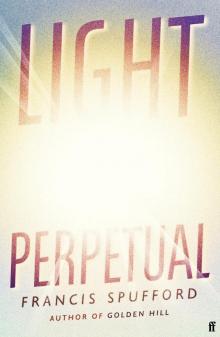 Light Perpetual
Light Perpetual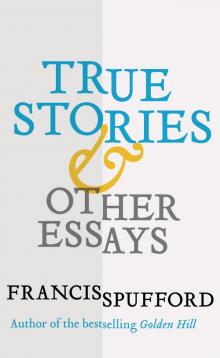 True Stories
True Stories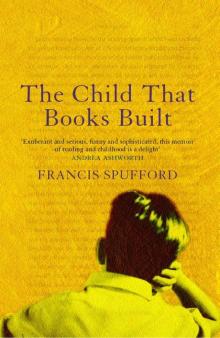 The Child that Books Built
The Child that Books Built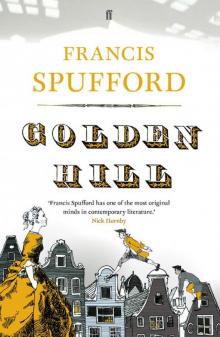 Golden Hill
Golden Hill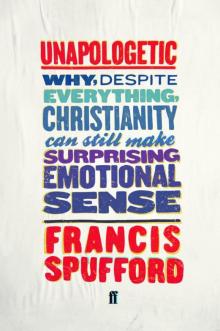 Unapologetic
Unapologetic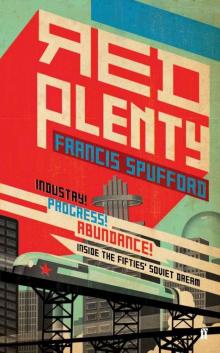 Red Plenty
Red Plenty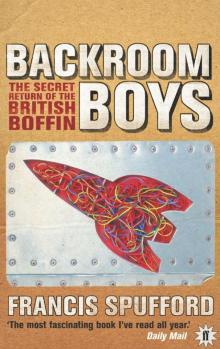 Backroom Boys
Backroom Boys